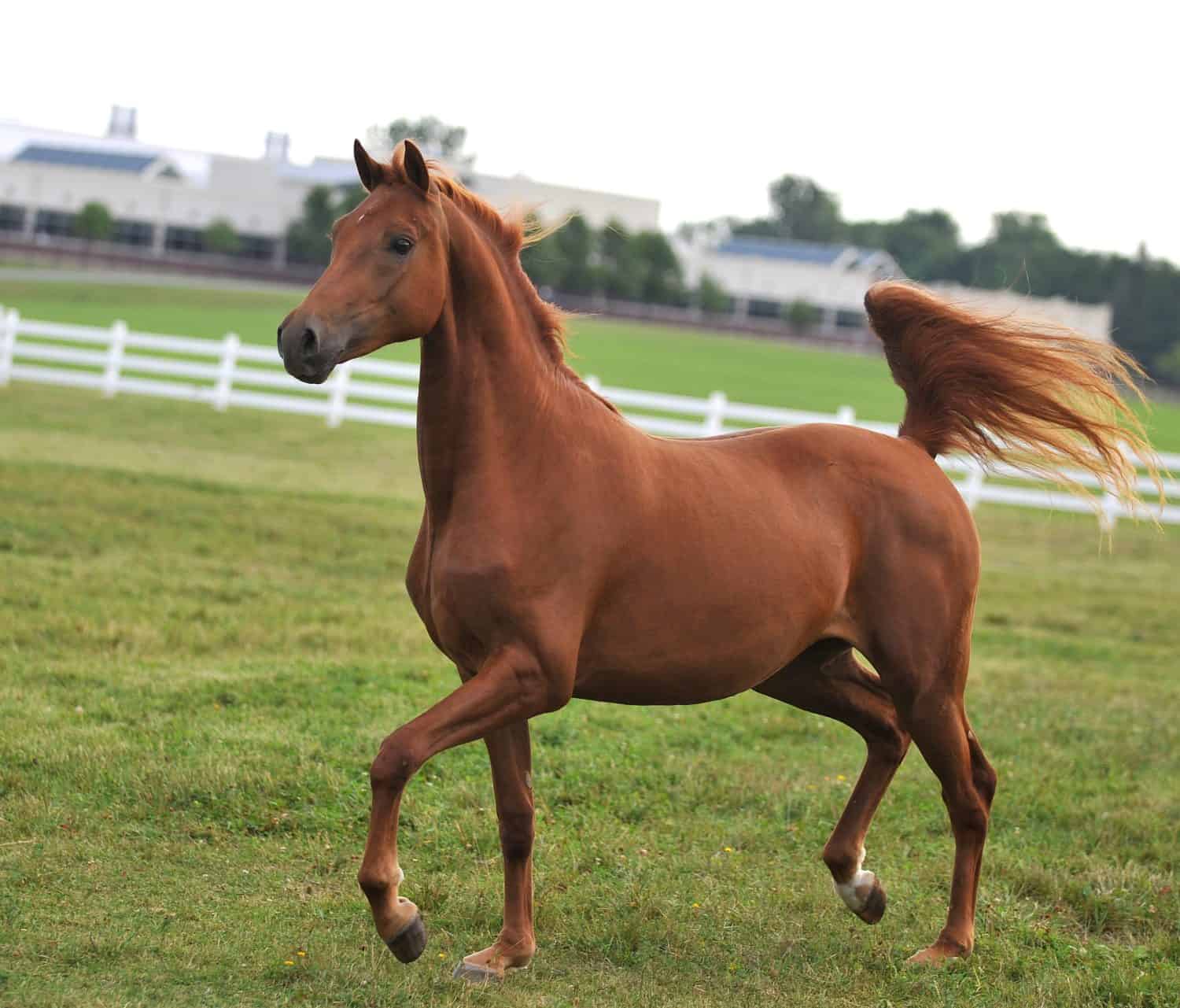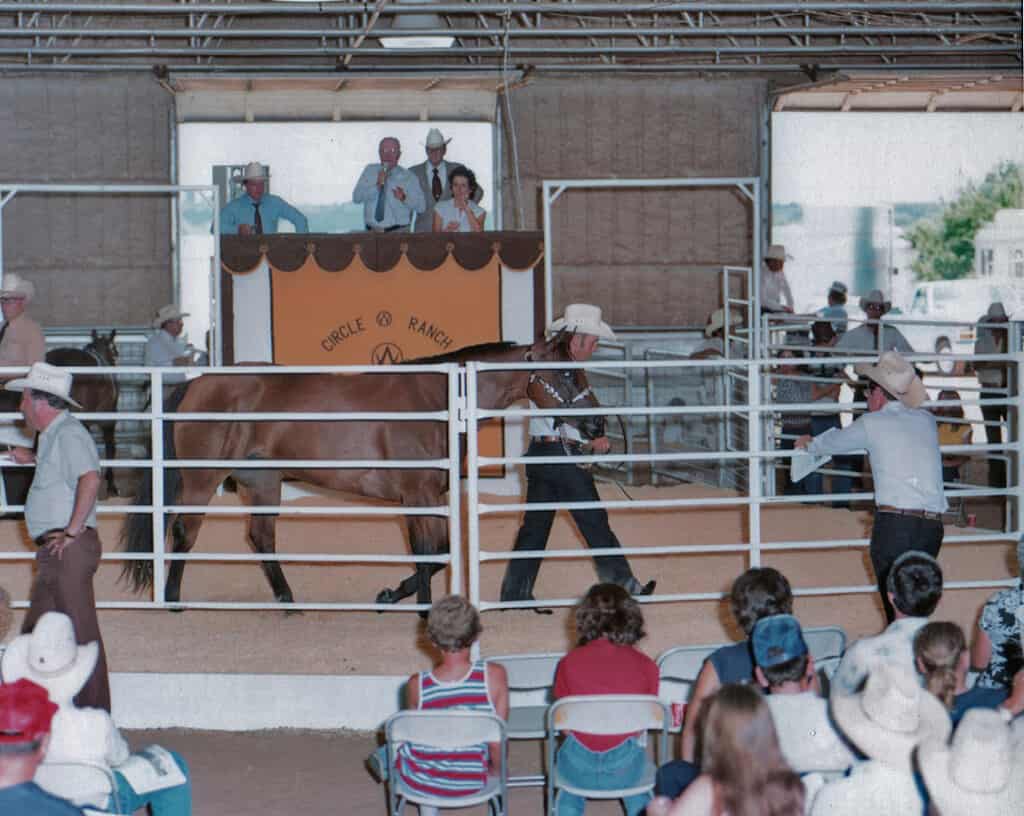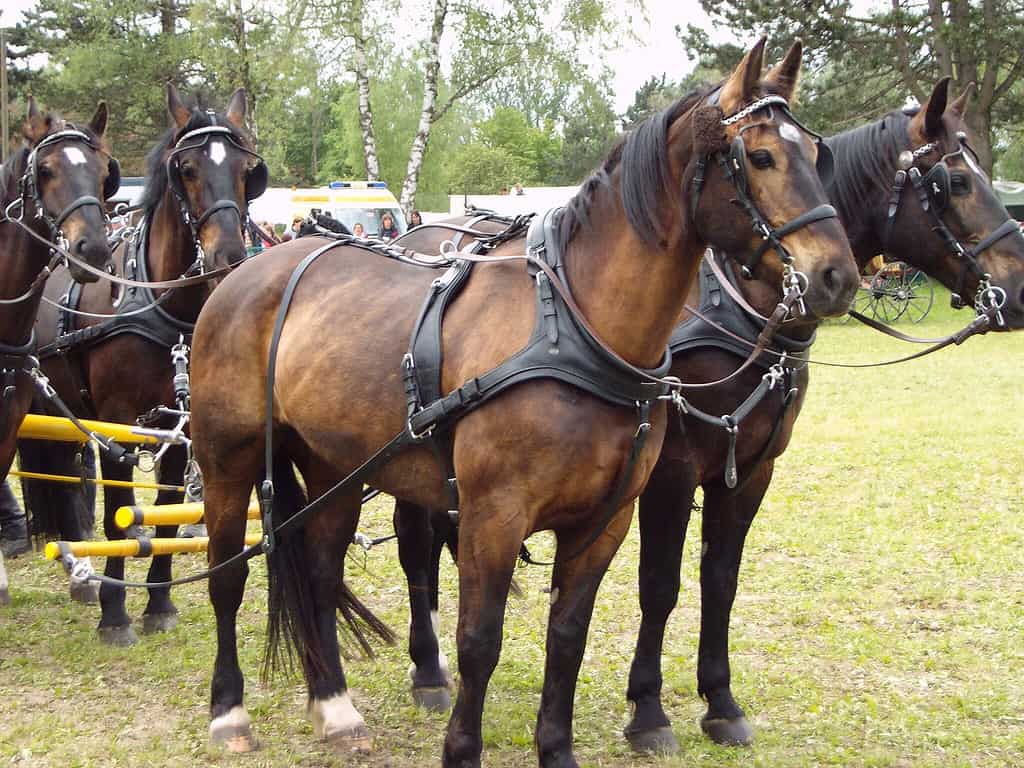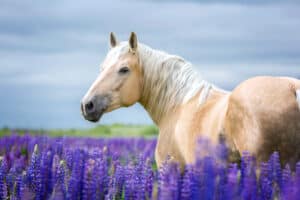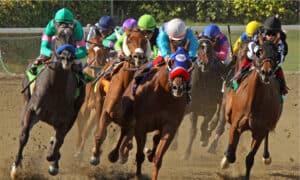A horse can make a great addition to your family, whether you live alone or with human children. They provide entertainment in watching, riding, and bonding with them. Before bringing a horse into your life, you need to look at the costs to see if it’s a financial decision worth making. Aside from the purchase itself, there are many one time and maintenance costs.
Horses can live to be over 30 years old if the circumstances are right. Because of this, they are larger commitment than other pets. On average, the annual costs can range from $1,000 to $2,500+ per year. That does not include emergency situations. Let’s break down all the horse costs you need to know before owning one.
Before You Buy
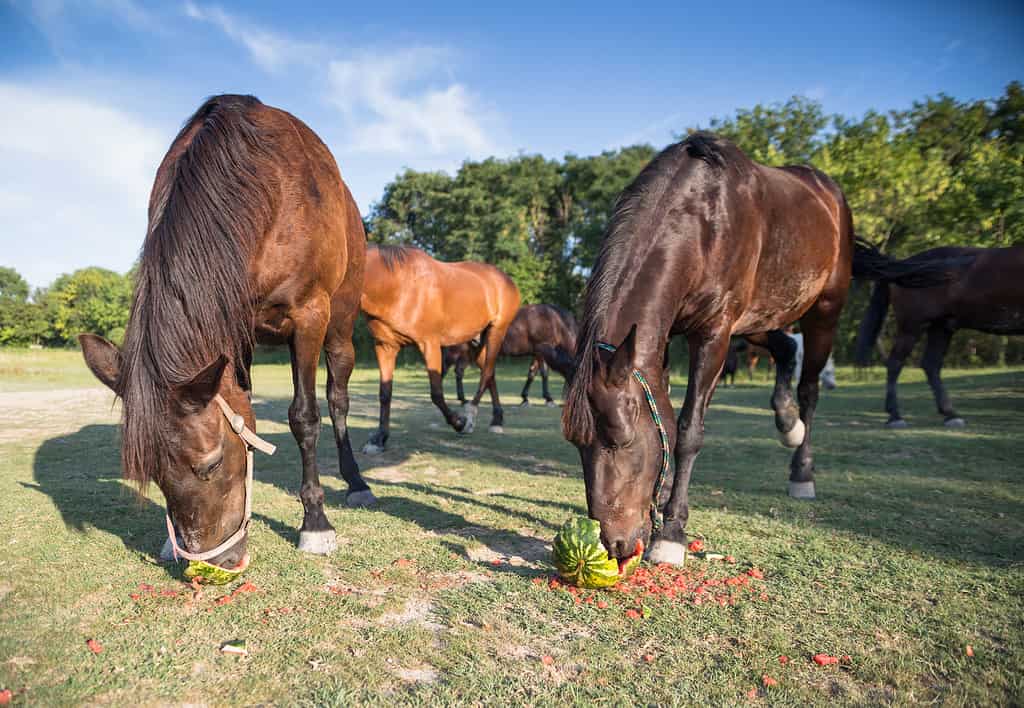
The price will vary depending on the breed and how many horses you buy.
©AleksandarDickov/iStock via Getty Images
You need to take a few steps before you buy a horse. First and foremost, you need to create a budget and see how long you need to save before you can buy a horse. If you are able to buy a horse without any issue, take a moment to analyze your privilege. Maybe you can help fund horse ownership for others or cut horse costs for those who rely on the animals to survive.
Do Your Research
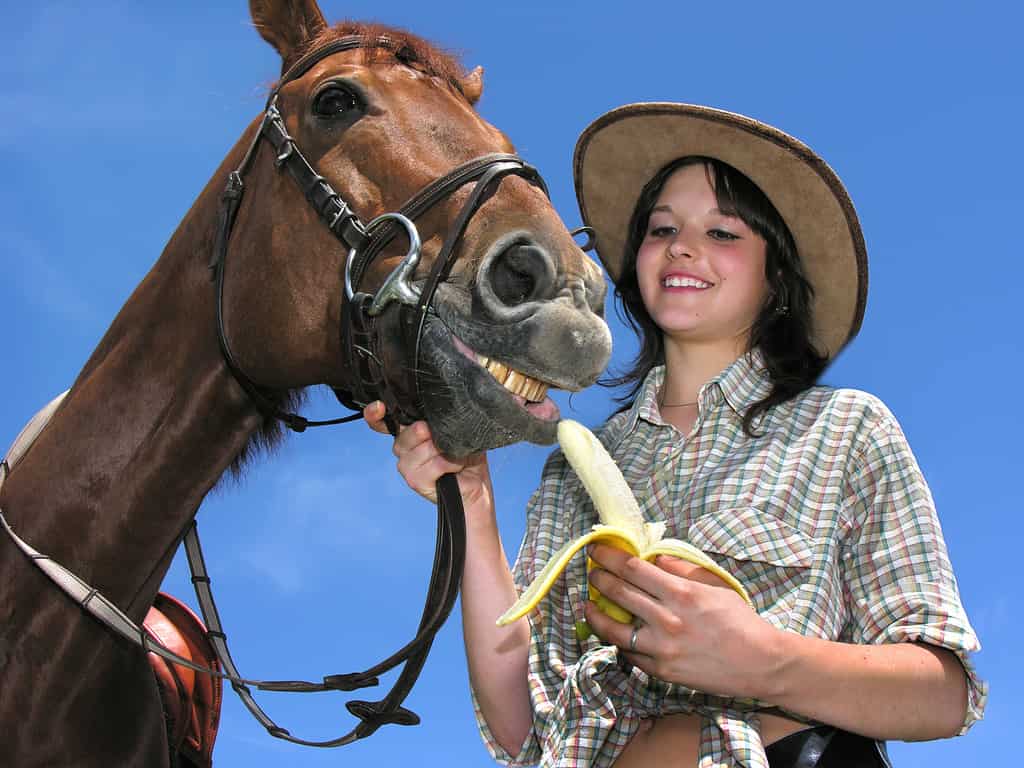
Each horse breed will have specific price differences.
©Yuriy Sukhovenko/iStock via Getty Images
Before you purchase a horse, you need to do some research specific to your desires. Do you want a horse you can compete with or one that will work in the fields with you? Maybe you want one that will be friendly with your kids and gentle while they learn how to ride. Whatever your reason, it will affect how much you pay for the horse itself and the upfront and annual costs.
Select Your Breed
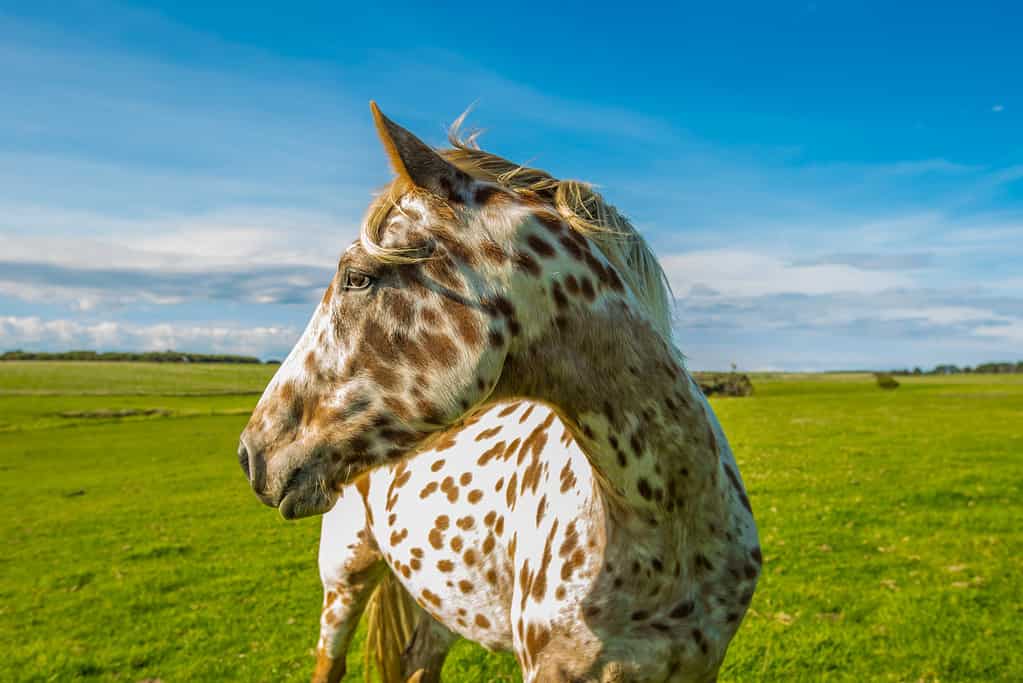
No matter the breed, horses from breeders are more expensive.
©Anara55/iStock via Getty Images
Each breed will have an individual cost. If you’d like a cheap breed, you can still find an animal that suits your needs. The more expensive traits in the animals are the colors of their coats, their hair, and their temperament. For lower horse costs, consider going with a crossbreed or shelter animal.
Up-front Costs
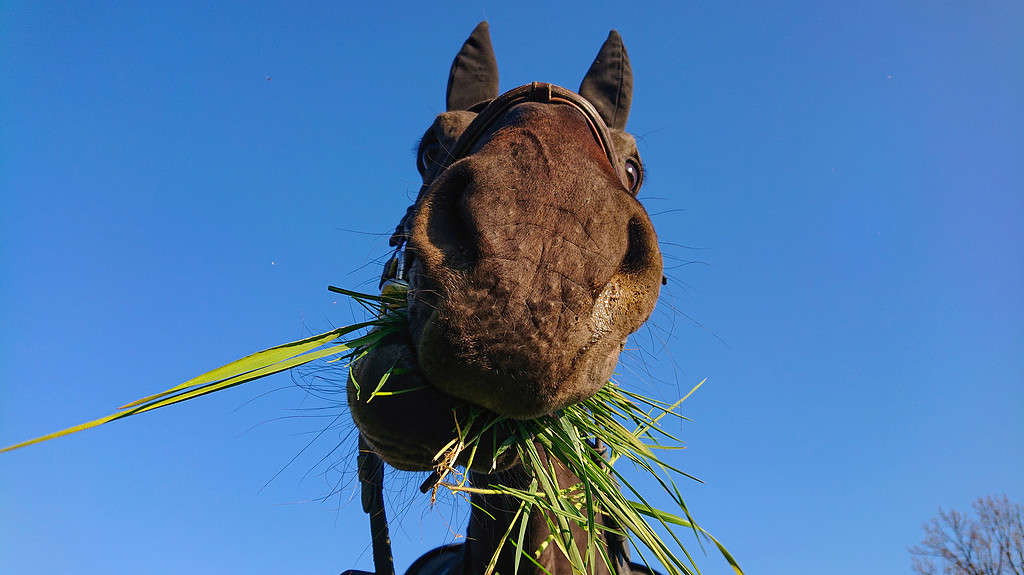
Buying a horse requires planning and patience.
©helivideo/iStock via Getty Images
To start your journey towards owning an equestrian, you’ll want to analyze the upfront horse costs. These are the expenses you need to cover to prepare for bringing a horse into your life. You can make these purchases over a span of time that works with your budget, that way you don’t feel overwhelmed.
Bringing the Horse Home
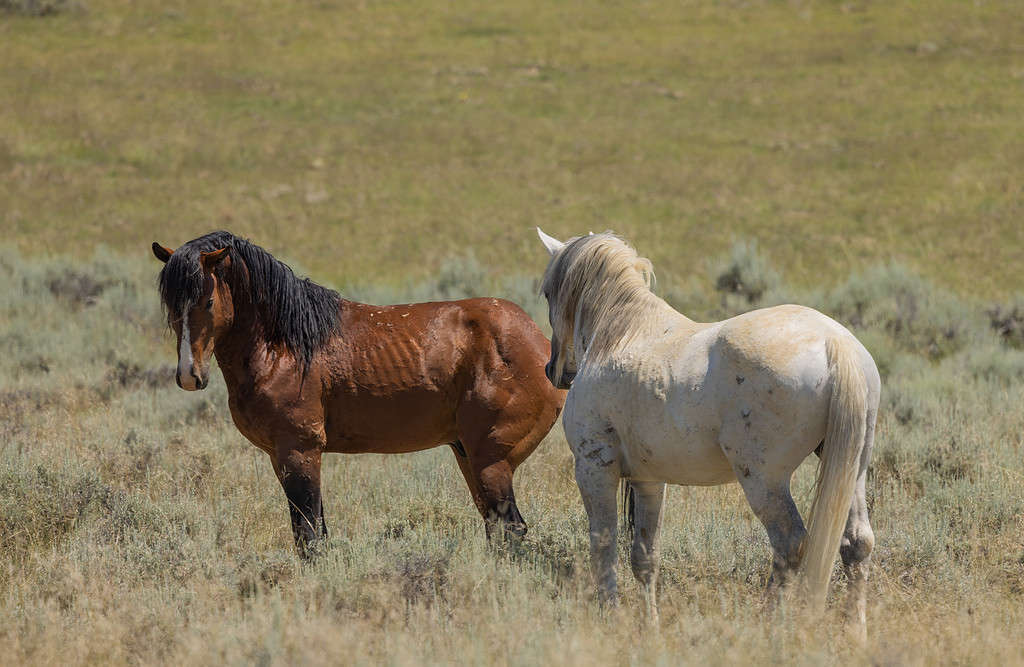
Include transportation costs in your planning.
©twildlife/iStock via Getty Images
The first cost to consider is bringing the horse home. This should be the first item on your budget list, even if it’s not the first purchase you make. You have different options for bringing your horse home.
Free
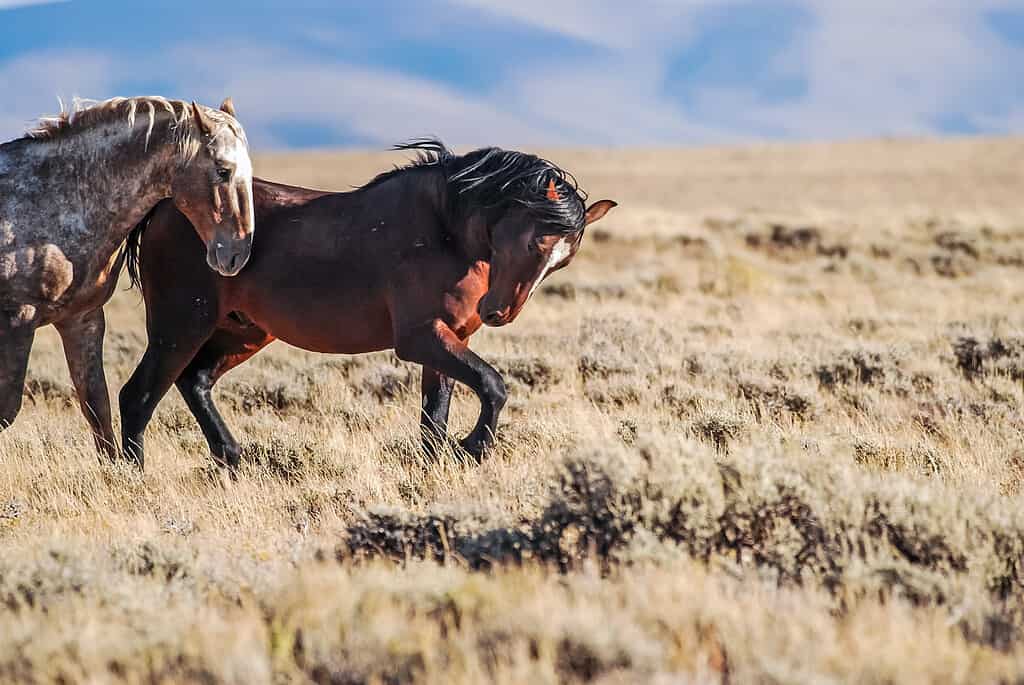
You can also get a stallion from the wild with the right training.
©Warren Price/iStock via Getty Images
In some cases, you might spend nothing at all to bring a horse home. You can choose to rescue a horse from a racetrack or euthanasia mill (in some cases it will be free, but it might not necessarily be). You can look online to see if people are giving their horses away. Free horses will most likely be older and might have health issues. Most people give away their animals because they can no longer care for them, and they want the pet to go to a good home. Be prepared to explain your plan of action. To find a free horse, you can put an ad in the paper or contact your local 4H club.
Adoption
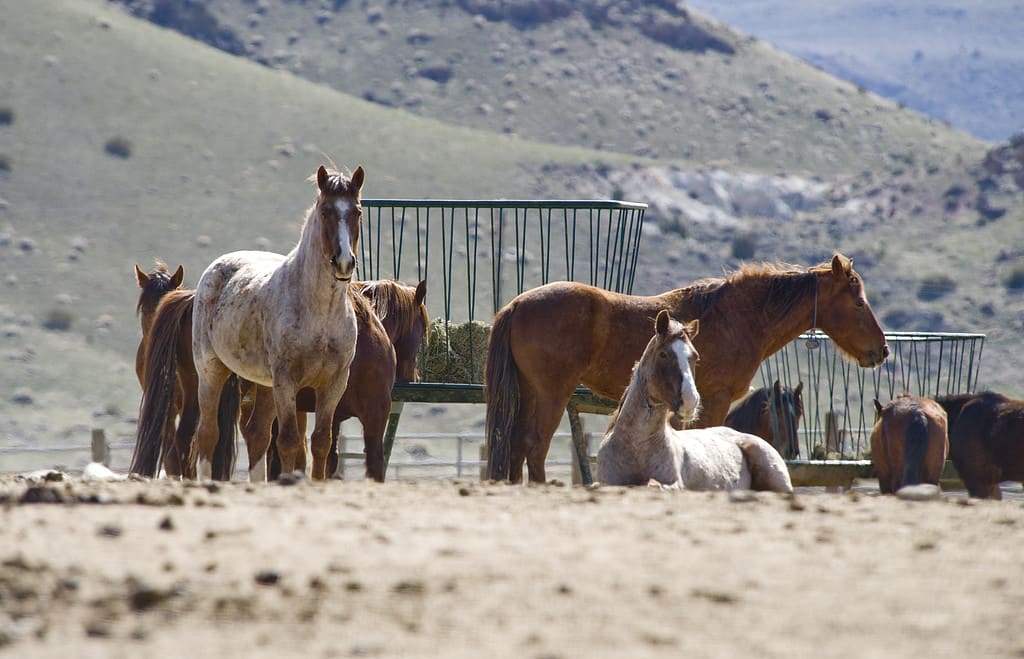
Sometimes owners will put their horses up for adoption for a lower price.
©alacatr/iStock via Getty Images
Most adoptions range from $25 to $500 USD, depending on the circumstances. In most cases, you’ll work with the local humane society or another animal rescue center. If horses are not common in your area, you might need to look outside your local community. The fee will usually cover the costs that the shelter paid before the adoption. It might include vaccinations, medical checkups, and other expenses.
Breeder
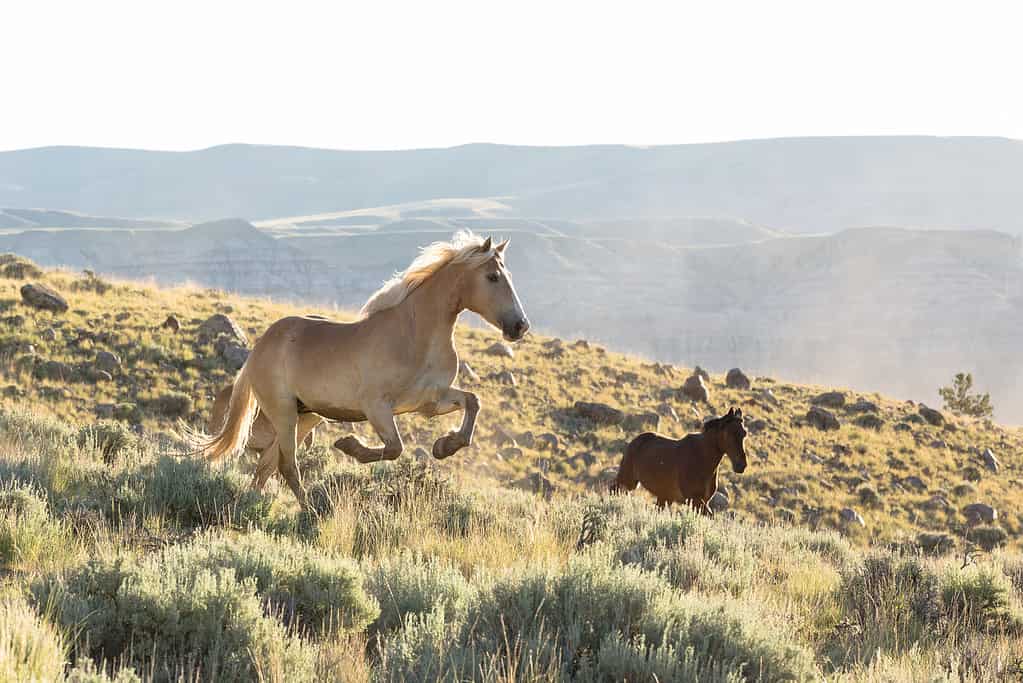
If you have the funds, you can work with the breeder to get a specific
horse
.
©Cavan Images/iStock via Getty Images
The most expensive option is going with a breeder. A breeder will change anywhere between $500 and $5,000 USD per animal. In the increased costs, you gain more flexibility with schedule, breed, pedigree, showmanship, and expertise. You can ask the breeder specific questions about the animal to help prepare for bringing it home. Before you go with this option, compare breeders in your area.
Supplies
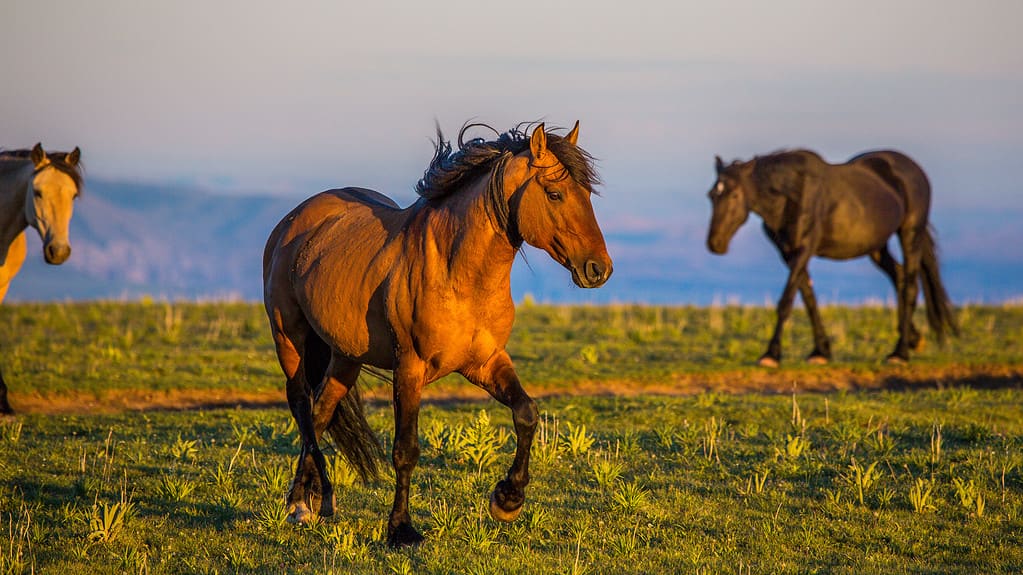
Include toys for your horse in your budget.
©Gary Tognoni/iStock via Getty Images
On average, supplies will cost around $800 USD. Here is a potential list of costs in USD, but remember, each horse has unique needs that cannot be predicted.
- Food: $100 – $300 per month
- Feed Pan: $10 – $30
- Water Trough: $25 – $100
- Halter: $25 – $100
- Lead Ropes: $10 – $50
- Hoof Pick: $2 – $10
- Grooming Brush and Comb: $5 – $20
- Fly Repellent: $5 – $30
- Saddle: $100 – $500
- Bridle and Bit: $50 – $250
- Stirrups: $20 – $100
- Blanket: $50 – $150
- Washing Accessories: $25 – $50
Annual Costs
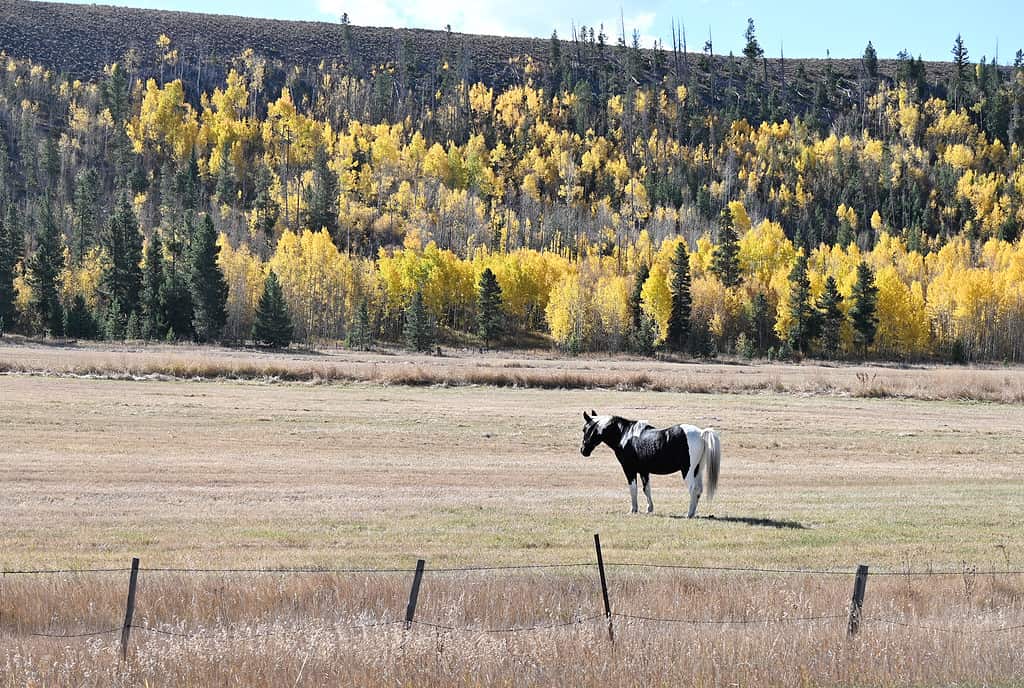
Horses need space to roam and exercise.
©steverts/iStock via Getty Images
To start, you can expect recurring supplies each year. These expenses will continue throughout the life of the animal, and you need to consider them seriously before purchasing a horse.
Health Care
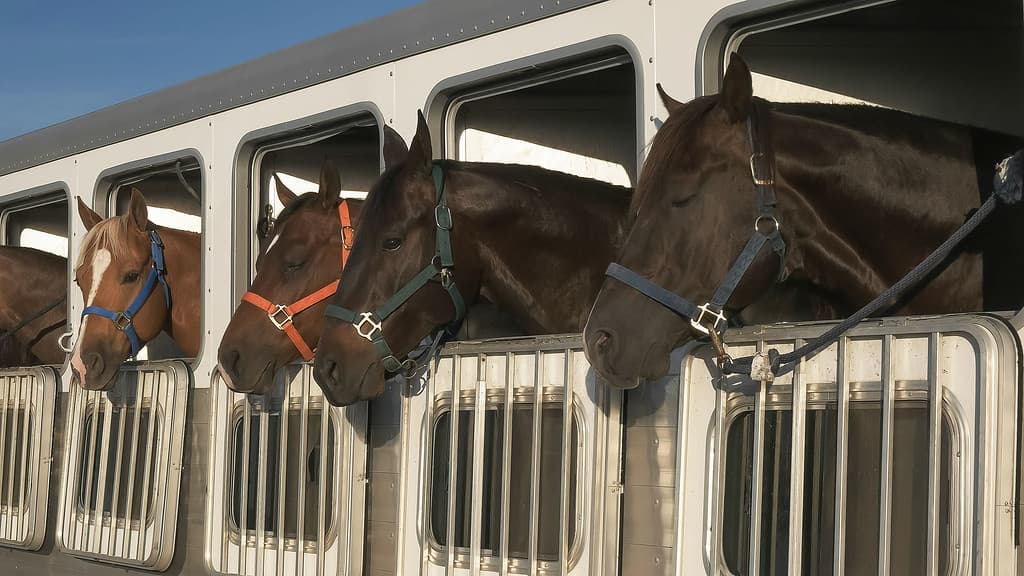
Horses need a specialty vet.
©crbellette/iStock via Getty Images
First up is healthcare, which ranges between $300 to $600 USD each year. The horse will need regular dental and physical attention, and vaccinations. The expenses will vary by state, vaccination, and procedure. These costs are if your horse is in perfect health. The costs increase if your horse needs surgery or physical therapy. These prices range in the thousands. Wellness is essential to keeping the costs of your animal down.
Check-ups
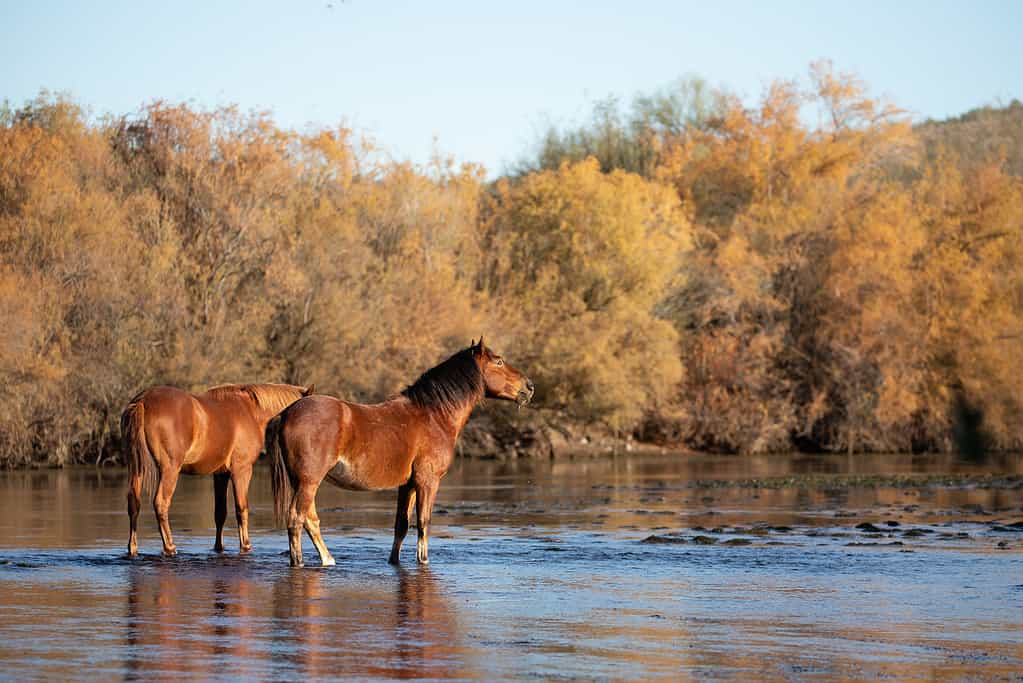
Regular checkups can help you maintain the health of your horse.
©htrnr/iStock via Getty Images
The doctor should see your horse a couple times a year to ensure the wellbeing of the creature. You want to schedule at least two checkups throughout the year, which go around $200-$300 USD each time. Be sure to include transportation costs to and from the vet. If the vet comes to you, they’ll probably charge a fee for travel.
Vaccinations
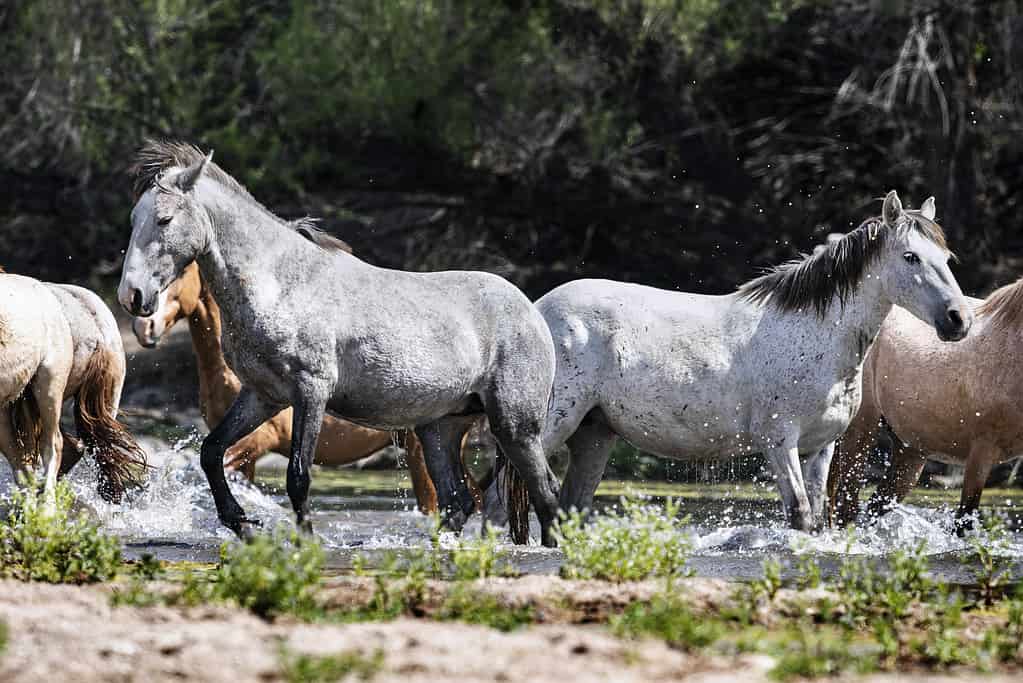
If you do not vaccinate your horse, they can easily become sick.
©Carol Gray/iStock via Getty Images
Along with vaccinations against diseases, your horse will need deworming treatment. Every two or three months, expect to pay $15 for the procedure. Twice a year, your animal will need vaccine updates, which are about $25 to $50 each. Boosters for diseases like influenza and tetanus are essential. If you keep your animal healthy, you can avoid costly emergency vet bills. On average, the costs will total between $110 and $190 USD per year for vaccines and deworming.
Dental
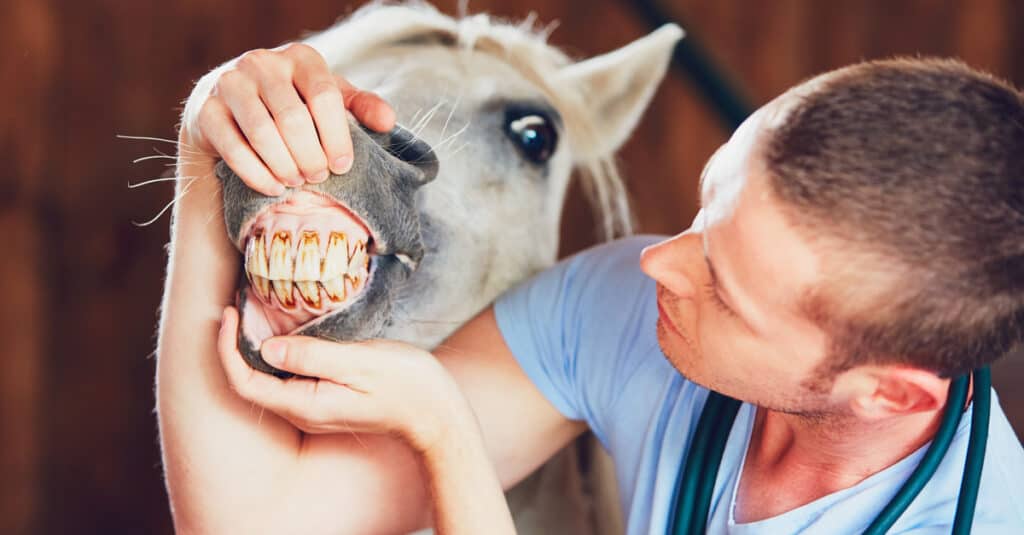
Horses need regular dental checkups to keep their teeth.
©Jaromir Chalabala/Shutterstock.com
Along with regular health checkups are dental checkups. A professional must come and clean the teeth of your animal or else they could get cavities or develop dental problems. A root canal for your equestrian will be very expensive. Expect to spend $75 to $125 per year on dental costs.
Emergencies
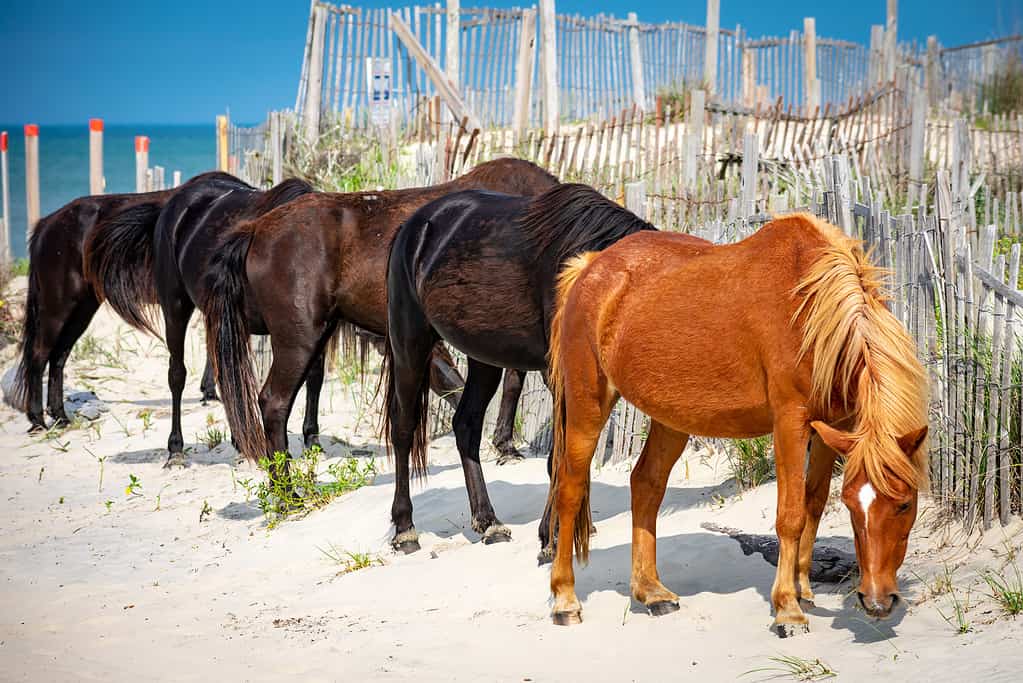
You always need an emergency budget for unpredictable circumstances.
©Jeff Yount/iStock via Getty Images
Unfortunately, emergencies happen. You’ll need to keep some funds available in case of these situations. Put some money, about $10,000 USD in a high interest savings account just in case. In the best-case scenario, you have money available to buy another horse if you don’t end up using it.
Some horses go their entire lives without any emergencies. However, other steeds need to go to the vet frequently for unplanned emergencies. Don’t take the risk and save the money. If your horse ends up needing surgery and you don’t have the money, the animal will probably die.
Insurance
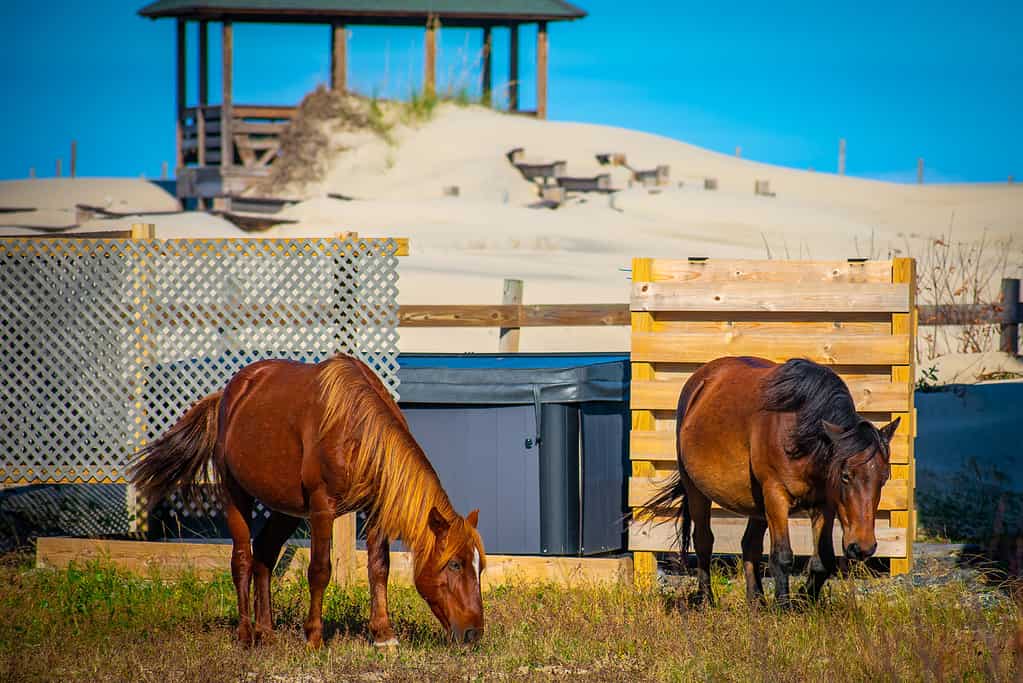
Getting insurance can help you cover certain emergencies.
©Jeff Yount/iStock via Getty Images
Equine insurance varies depending on your needs and the type of horse you want to insure. If you don’t have funds available to save for emergencies, insurance is a great way to help you pay. Policies can cover medical catastrophes, mortality, and other circumstances. You can buy a policy through a vet or an independent company. Be sure to comparison shop in your area before you make a decision. The costs can range between $300 to $12,000 per year.
Food
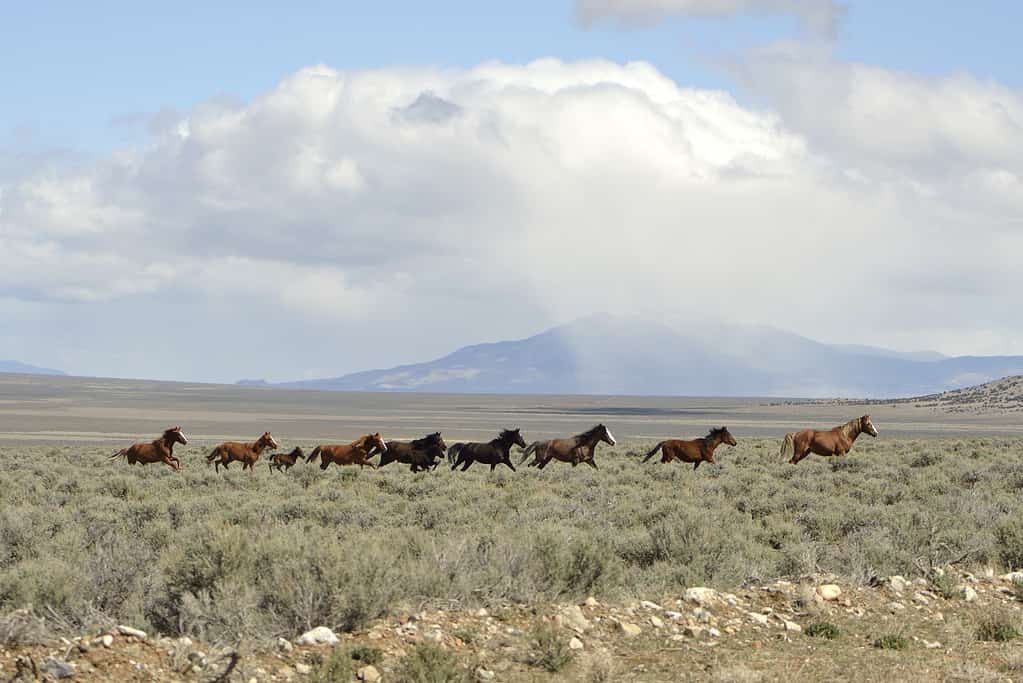
If you let your horses roam, they can supplement their diet with grass.
©mlharing/iStock via Getty Images
Your horse will need a special diet to maintain their health. You’ll probably spend between $100 and $300 USD per month on hay bales alone for one horse. In addition, the animals love to eat fruits and vegetables. You need to buy salt and other supplements for your equine as well, which is usually $25 to $50 per month. In total, you might spend anywhere between $125 and $350 per year on food.
Boarding
Unless you have many acres for your horse to roam, you’ll need to board the animal somewhere. The price for boarding can vary greatly depending on the establishment. Think about what you want out of the situation and comparison shop from there. Maybe you just want a stable for your horse to sleep in at night, which will cost less (maybe $18 USD a month). If you want training, grooming, and specialized care, you can expect to pay more (sometimes $350 to $400 USD per month).
If you can board the horse in the yard or land you maintain, you will still need to spend money. You’ll need to put up quality fencing and then keep up the condition of the structure. The costs will usually range between $20 and $100 USD per year. You’ll also need to purchase toys for your horse to play with. The toys can go between $20 and $50 USD per year.
Total Estimated Cost
Each state in the U.S. will have differing costs. Again, each individual horse will have its own needs that cannot be calculated in estimates. The numbers come from horse information and the values of the dollar per state.
| State | Average Annual Cost |
|---|---|
| Alabama | $8,448 |
| Alaska | $10,226 |
| Arizona | $9,341 |
| Arkansas | $8,522 |
| California | $11,040 |
| Colorado | $10,015 |
| Connecticut | $10,560 |
| Delaware | $9,715 |
| Florida | $9,619 |
| Georgia | $8,995 |
| Hawaii | $11,565 |
| Idaho | $9,079 |
| Illinois | $9,715 |
| Indiana | $8,832 |
| Iowa | $8,752 |
| Kansas | $8,752 |
| Kentucky | $8,597 |
| Louisiana | $8,832 |
| Maine | $9,525 |
| Maryland | $10,676 |
| Massachusetts | $10,335 |
| Michigan | $9,079 |
| Minnesota | $9,432 |
| Mississippi | $8,375 |
| Missouri | $8,674 |
| Montana | $9,252 |
| Nebraska | $8,832 |
| Nevada | $9,525 |
| New Hampshire | $10,226 |
| New Jersey | $11,040 |
| New Mexico | $9,165 |
| New York | $11,167 |
| North Carolina | $8,832 |
| North Dakota | $8,995 |
| Ohio | $8,674 |
| Oklahoma | $8,752 |
| Oregon | $9,619 |
| Pennsylvania | $9,525 |
| Rhode Island | $9,619 |
| South Carolina | $8,752 |
| South Dakota | $8,597 |
| Tennessee | $8,752 |
| Texas | $9,432 |
| Utah | $9,432 |
| Vermont | $9,913 |
| Virginia | $9,913 |
| Washington | $10,226 |
| West Virginia | $8,674 |
| Wisconsin | $9,079 |
| Wyoming | $9,341 |
Thank you for reading! Have some feedback for us? Contact the AZ Animals editorial team.

